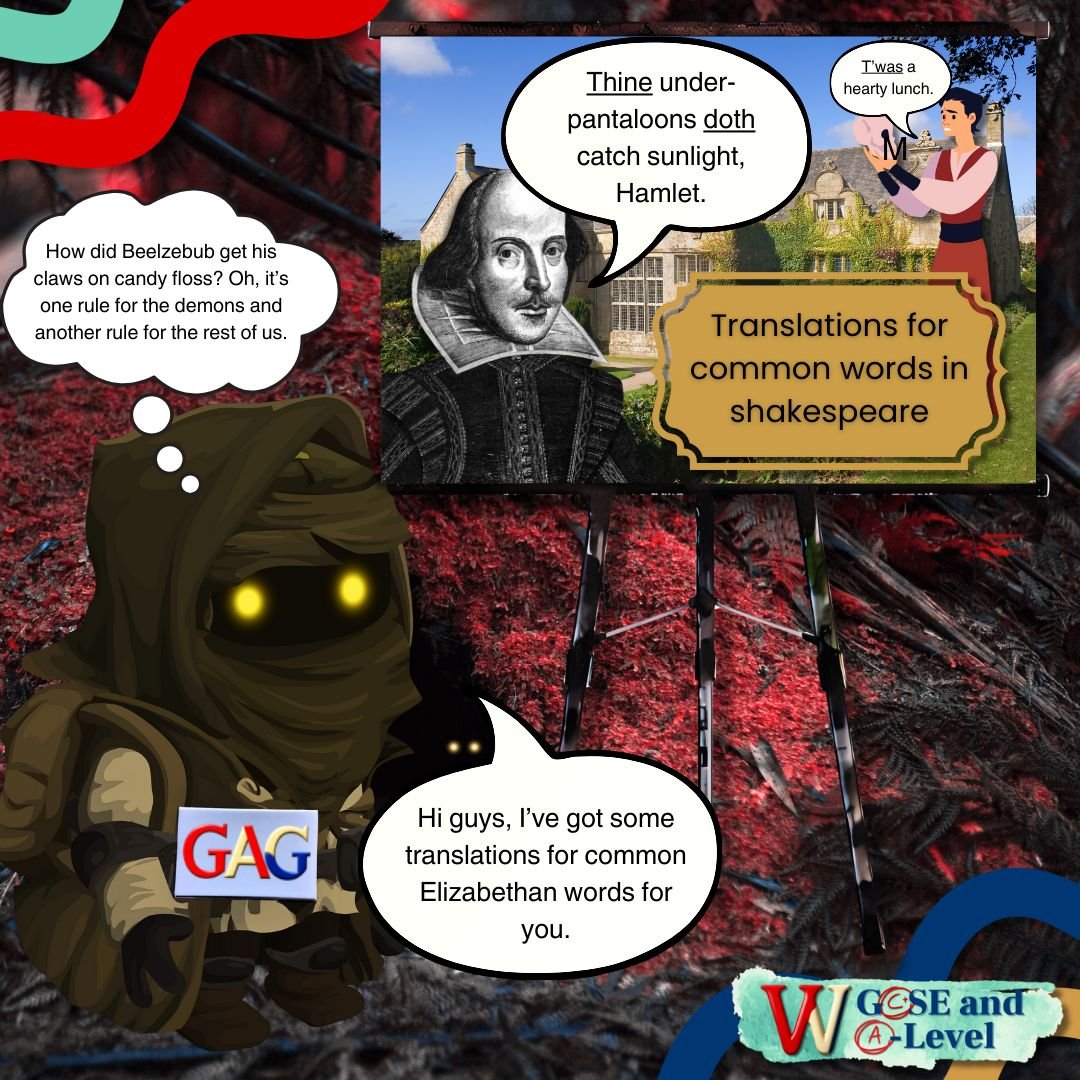GCSE and A-Level Goblin: Translations for Common Words in Shakespeare
“Hey guys, GAG here. That’s GCSE and A-Level Gremlin if you are new here. I should know if you are new, but I lost the register in the eternal pit of torment this morning, so go easy on me. This place is falling apart.
Anyway, this week we are looking at some really simple words that come up all the time in Shakespeare, and their modern English translations.
Common Elizabethan Words and Their Modern Translations
I’m creating this list because, if you understand these ‘building block’ words, the sense of the full sentence will be much easier for you to find.
Elizabethan English - Modern English
“my / mine” - mine (this belongs to me)
“thy / thine” - yours (this belongs to you)
“thee / thou / ye” - you
“shalt” - shall / will
“within” - inside
“without” - outside
“exuant” - exit
“t-was” - it was
“t-were” - it was
“hail” - hello import person
“adieu” - good bye
“by your leave” - If you will allow it
“hath” - has
“doth” - does
any regular verb ending in “eth” - any regular verb ending in es (quoteth - quotes).
“my man” - my servant
“forthwith” - now
“whence” - where
“thence” - back there
“thither” - over there
“hither” - come here
“and lo” - look!
“hark” - listen
“but to be…” - oh I wish I was… / oh - if only…
“would that…” - “I wish that"…”
Summing Up
Once you have got used to the changes these words have made since Elizabethan times, you’ll find Shakespearean English makes a lot more sense, and then you can tell people that are getting on your nerves to ‘Exuent forthwith’!
I’m already in hell, so the question is - would it be any worse if I got caught stealing Beelzebub’s candy floss? What am I saying? It always gets worse.”

